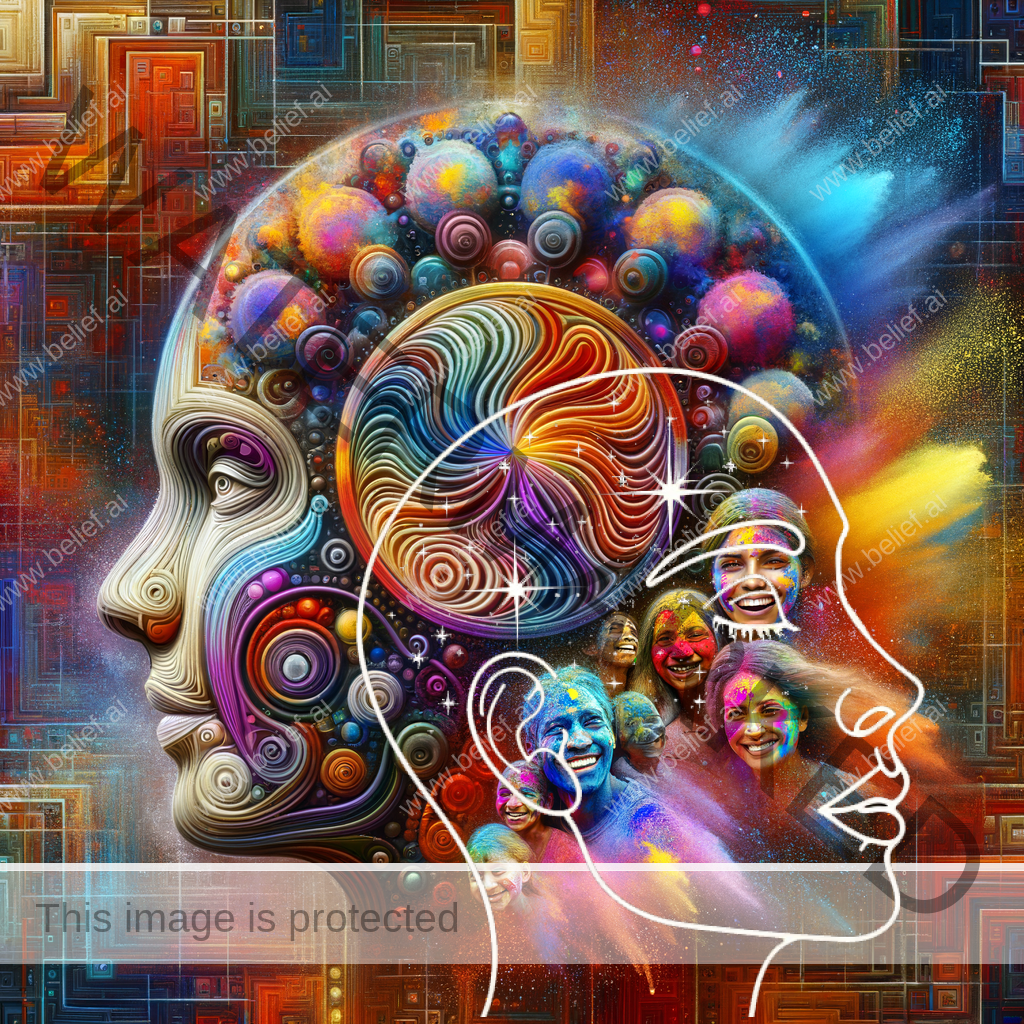The world is a beautiful mosaic of traditional practices, cultural diversity, and beliefs. Every religion has its own unique set of principles that guide the lives of its followers. Hinduism, one of the world’s oldest religions, is a colorful tapestry of vibrant traditions and ancient wisdom. With rich cultural practices and profound philosophical insights, it offers an intricate model of living that aims to achieve spiritual transcendence and inner peace. Let’s explore this fascinating religion!
Global Distribution and Demographics
Hinduism, as a religion, has a significant presence worldwide. It is predominantly practiced in the Indian subcontinent, where it originated. Globally, it is the third-largest religion after Christianity and Islam. With its astounding following of over a billion people, it represents a significant 15% of the world’s population. Despite its huge follower base, it is interesting to note that Hinduism does not proselytize, meaning it doesn’t actively seek converts.
Outside of India, Nepal holds the distinction of being the only nation with a majority Hindu population. Immigrant communities have also brought Hinduism to various corners of the world, including the United States, the Caribbean, Southeast Asia, and the Pacific Islands. Though the religion’s influence varies between regions, its vibrant traditions and ancient wisdom continue to affect people’s lives worldwide.
Origin, Founders, and Key Figures
Hinduism has no single founder but evolved over several millennia from diverse cultural and religious practices of the Indian subcontinent. It absorbed and assimilated various cultural influences, resulting in a religion that is remarkably flexible and diverse. The key figures in Hinduism are numerous, reflecting the religion’s rich mythology and philosophical discourse.
Key figures in Hinduism include a pantheon of deities, each embodying different aspects of life and the universe. The trinity of Brahma, Vishnu, and Shiva are considered the highest gods, representing creation, preservation, and destruction. Other critical figures include the sages and philosophers who wrote the Hindu scriptures, the epic heroes of the Mahabharata and Ramayana, and the numerous saints and spiritual leaders who have guided the faith’s development throughout history.
Brief History

With roots tracing back over 4000 years, the history of Hinduism is intertwined with the history of the Indian subcontinent. The earliest traces of Hindu practices are found in the Indus Valley Civilization, one of the world’s oldest urban cultures. Over centuries, these early practices evolved, absorbed new influences, and gave rise to the complex and multifaceted religion we know today as Hinduism.
The period from 500 BCE to 500 CE, known as the “Classical Age,” saw the development of key Hindu philosophical concepts and the composition of sacred texts like the Upanishads, Puranas, and the two great Hindu epics, the Ramayana and the Mahabharata. Hinduism witnessed significant changes during the medieval period, especially under Islamic and later British rule. Despite these challenges, it survived and continued to evolve, demonstrating remarkable resilience and adaptability.
Summary of Beliefs
At its heart, Hinduism is a complex, diverse, and inclusive faith. It does not prescribe a fixed set of beliefs, but is rather a way of life that encourages spiritual growth and self-realization. Hinduism professes the oneness of the universe, the cycle of birth and rebirth (samsara), karma (the law of cause and effect), and moksha (liberation from the cycle of rebirth).
It upholds the principle of Dharma (righteous duty), which governs moral and ethical conduct. It also acknowledges a multitude of gods and goddesses, each representing different aspects of the cosmos and human nature. Yet, it allows followers the freedom to choose their own path to spirituality, whether it be through devotion, meditation, yoga, or philosophical inquiry.
Community and Social Structures
Hindu society is traditionally divided into four varnas or classes: the Brahmins (priests and scholars), the Kshatriyas (warriors and rulers), the Vaishyas (merchants and farmers), and the Shudras (servants and laborers). This system, known as the caste system, has been a defining feature of Hindu society, though it has evolved over time and varies greatly by region and community.
Family and community are of great importance in Hindu society. Families often live together in multi-generational households, and important life events are marked by community-wide celebrations. The temple also plays a central role in the community, serving as a place for religious ceremonies and community gatherings.
Sacred Texts and Writings
Hinduism boasts a vast corpus of sacred texts and philosophical treatises. The oldest among these are the Vedas and the Upanishads, which contain hymns, prayers, and philosophical discussions. The two great epic poems, the Mahabharata and the Ramayana, are also considered important texts, as they illustrate moral and ethical principles through engaging narratives.
The Bhagavad Gita, a part of the epic Mahabharata, holds a special place as it encapsulates the essence of Hindu philosophy. Other significant texts include the Puranas, the Dharma Shastras (legal and ethical treatises), and the Agamas and Tantras, which provide guidelines for temple construction and ritual worship.
Ethical Beliefs and Moral Codes
Hindu ethical beliefs revolve around the concept of Dharma, which dictates the moral and ethical duties one must follow for a righteous life. These duties vary according to one’s age, occupation, gender, and caste. The central idea is to live in a way that promotes harmony and balance in the world.
Ahimsa, or non-violence, is another critical ethical principle. It advocates for compassion and respect towards all living beings. Satya, or truthfulness, and Asteya, non-stealing, are other important moral codes. These principles aim to promote a peaceful and harmonious society.
Cultural and Social Impact

Hinduism has profoundly influenced the cultural and social fabric of the regions where it is practiced. Hindu festivals like Diwali, Holi, and Navaratri are celebrated with great fervor, adding color and vibrancy to the social landscape. Hindu philosophy has also deeply influenced Indian classical music, dance, and art, giving rise to rich and diverse artistic traditions.
Hinduism’s emphasis on non-violence and respect for all life forms has also shaped dietary practices, leading to a strong tradition of vegetarianism in Hindu communities. Yoga and meditation, rooted in Hindu spiritual practices, have gained worldwide popularity for promoting physical health and mental well-being.
Contemporary Issues and Challenges
Like all religions, Hinduism too faces contemporary issues and challenges. The caste system, despite being officially abolished, continues to be a source of social inequality and discrimination. Striking a balance between traditional practices and modern values is another challenge faced by Hindu communities today.
Environmental degradation is another concern, as rivers and natural sites considered sacred are threatened by pollution and urban development. However, Hindu leaders and organizations are increasingly addressing these issues, advocating for social reform and environmental protection in line with Hindu ethical principles.
Hinduism, with its vibrant traditions and ancient wisdom, offers a unique perspective on life and spirituality. It is a testament to the human quest for understanding and connecting with the divine. As we navigate through the complexities of the modern world, the rich tapestry of Hinduism serves as a timeless guide, reminding us of the interconnectedness of all life and the importance of living in harmony with the world around us.
Want to Learn More?
Here’s a list of resources that can help you learn more about Hinduism:
- Books:
- “The Bhagavad Gita” translated by Eknath Easwaran: This is a revered scripture of Hinduism, offering insights into Hindu philosophy and spiritual practices.
- “The Upanishads” translated by Eknath Easwaran: These texts explore profound philosophical concepts within Hinduism.
- “Introduction to Hinduism” by Gavin D. Flood: This book provides a comprehensive overview of Hinduism, covering its history, beliefs, rituals, and practices.
- Websites:
- Sacred Texts: sacred-texts.com/hin: This website offers a collection of Hindu scriptures, including the Vedas, Upanishads, Mahabharata, and Ramayana.
- Hinduism Today: hinduismtoday.com: This online magazine covers various aspects of Hinduism, including spirituality, culture, and current events.
- The Pluralism Project: pluralism.org/religions/hinduism: This resource provides an introduction to Hinduism within the context of religious pluralism in the United States.
- Online Courses:
- Coursera: Coursera offers courses on Hinduism, such as “Introduction to Hinduism” and “The Modern and the Postmodern,” which delve into Hindu philosophy and its contemporary relevance.
- edX: Similar to Coursera, edX also provides courses on Hinduism, such as “Hinduism Through Its Scriptures” offered by Harvard University.
- YouTube Channels:
- The Chopra Well: youtube.com/user/TheChopraWell: Deepak Chopra’s channel often discusses Hindu philosophy, spirituality, and mindfulness.
- The Advaita Academy: youtube.com/user/advaitaacademy: This channel focuses on Advaita Vedanta, a major school of Hindu philosophy.
- Documentaries and Films:
- “The Story of India” (BBC Documentary Series): This series explores the history, culture, and spirituality of India, including its Hindu heritage.
- “Samsara” (2011): Although not specifically about Hinduism, this visually stunning documentary captures various aspects of spirituality, including Hindu rituals and traditions.
By utilizing these resources, you can gain a deeper understanding of the beliefs, history, and culture of Hinduism.
